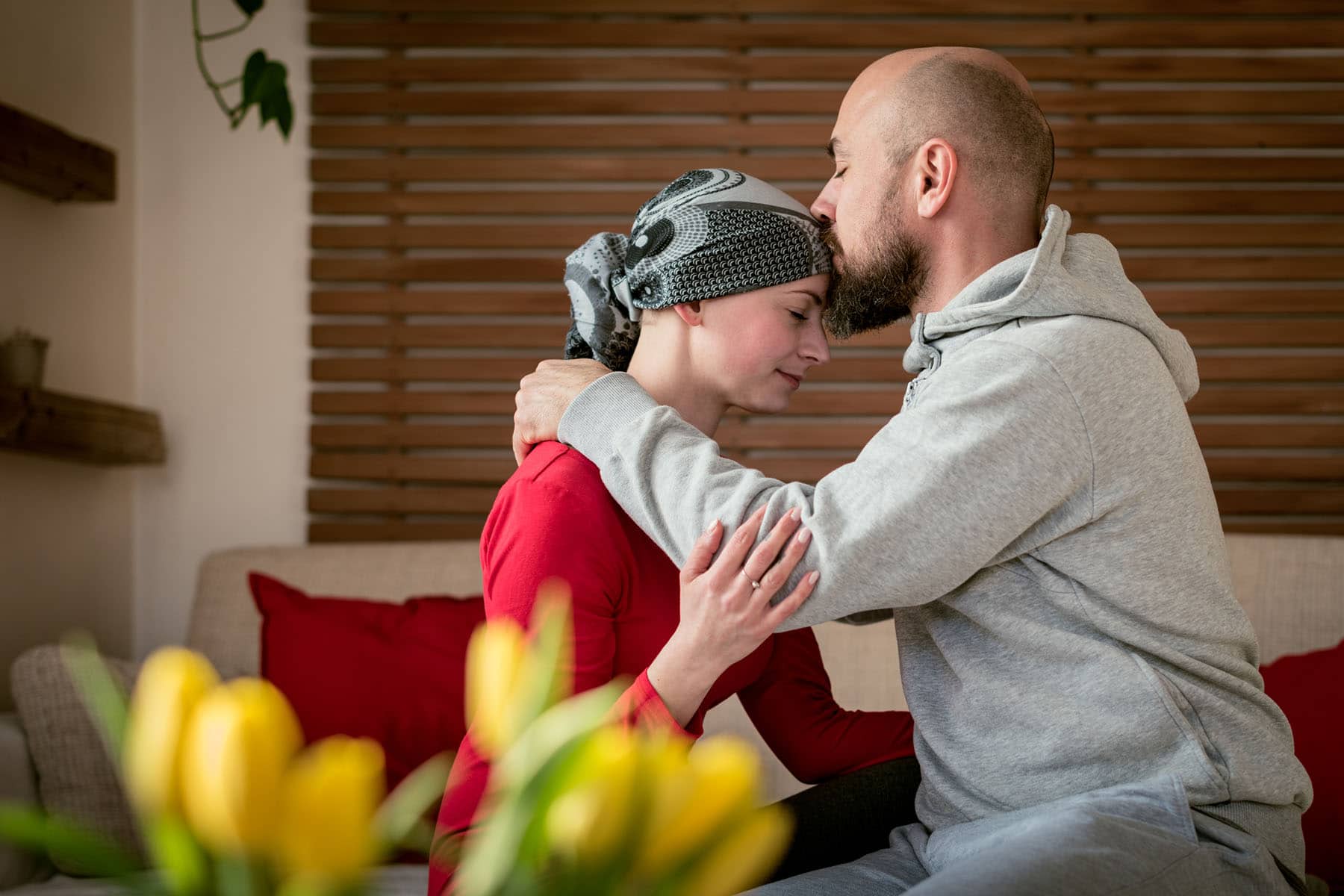 Andrea Obzerova / 500px/Getty Images
Andrea Obzerova / 500px/Getty Images Recently a friend and colleague informed her community that she was having a mastectomy. My initial response was sorrow. I imagined the fear and depression she must be carrying, having to go through this surgery and all that would accompany such a procedure, not to mention the sorrow of losing an essential part of her body and identity as a woman. Giving up any part of our anatomy challenges how we see ourselves and who we will be without a part of our physical being. Whether a limb or an organ, one has to revision self-perception and learn to cope with the demands these changes create.
My father, after being diagnosed with rectal cancer, was told that part of his lower intestine would be removed and replaced with an ileal pouch. I remember how shocked he was at this new reality and how life would change permanently. As food and eating was one of his great pleasures, it raised many questions and feelings. Similarly, every veteran who returns home after leaving behind a part of their body struggles with questions of identity, PTSD, and coping mechanisms when it comes to incorporating mechanical parts, in order to function as fully as possible. The Special Olympics have taught us how resilient human beings are and what they can accomplish under new and challenging conditions.
However, what struck me this time as I heard the word “mastectomy” was the sound of this word. I identified with it as if it was my reality, and I felt rage. My breast is not a “mast.” A cold and rather unpleasant description in no way defines my breast, or any woman’s breast, for that matter. Researching its origins, I found that the Latin words, “mastos,” which means “breast,” and “ectomay,” which means excision, were applied to this procedure. The first introduction to this procedure was in 1894 by Professor William Halstead, of John’s Hopkins University. It was a life-saving procedure, yet the name has a distant, unattached and unemotional sound to it. A rather aloof description for something incredibly personal and intimate.
My breast is not a “mast.” A cold and rather unpleasant description in no way defines my breast, or any woman’s breast, for that matter.
My breasts have nurtured and fed three babies. They nestled and found comfort and safety in their early months being held close to my breasts. They have been touched and held by my husband, creating intimate moments of pleasure and joy. They have been an essential part of my identity as a woman, often enhancing my feelings of femininity and grace. They’ve added a curvy shape to my body, a roundness that is the most essential shape in nature, and a feature highlighting my sexier apparel. They remind me of my uniqueness as a woman and are a core feature of my identity.
Cancer is a terrifying diagnosis, and when tumors are removed from within the body there is great relief and hope for the future. If we look at the word “hysterectomy,” as well, we can’t help but observe that the name has something to do with “hysteria, a diagnosis doctors once applied to women who demonstrated extreme emotional expression—the deep levels of depression or the highs of an extreme state of being manic. There are many reasons for removing the uterus and ovaries, but referring to the procedure by a word that reflects outdated understandings by male doctors and leaves a pejorative impact on women is unnecessary.
Removing a part of a woman’s body that is so core to her identity and so deeply connected to her expression as a mother or lover, is traumatic, laden with great amounts of loss and grief. Perhaps the word we use to describe it should reflect this reality. Perhaps we should stop calling this procedure a mastectomy—what about a “breast-ectomy” instead?— and maybe the word and procedure, “hysterectomy,” should also be updated to reflect the true nature of its purpose. Perhaps, in many cases, there are better words and names for procedures that are deeply personal and produce painful emotional and psychological realities.
On the other hand, it’s possible that the word “mastectomy” protects one from facing a painful reality. It sounds clinical and procedural, rather than forcing one to name the loss, or to acknowledge the depth of loss that this procedure represents. Maybe it is too painful to blatantly acknowledge such a loss to the world. Perhaps “mastectomy” is safer, after all, and gives a woman the protection she needs at a moment of vulnerability.
Breasts are life-fulfilling. They gorge with nourishing liquid and remind us of our unique and special role in loving and caring for our young. Like a limb, though not as essential for functioning in the world, they are a part of who a woman becomes. The words we use to diagnose a condition and define the next steps should be words that are sensitive, words that demonstrate compassionate and understanding. Language is both literal and symbolic. It holds meaning and definition. In Judaism, we believe it has the power to create and to destroy. We know that words create worlds.
The words we use to diagnose a condition and define the next steps should be words that are sensitive, words that demonstrate compassionate and understanding.
Words generate emotion and meaning that are unique to each individual, and sometimes they even bind communities. Let us think seriously about the language we use, its impact and meaning for ourselves and those around us, especially when confronted with painful and heart-wrenching experiences.
Eva Robbins is a rabbi, cantor, artist and the author of “Spiritual Surgery: A Journey of Healing Mind, Body and Spirit.” She is also a faculty member at AJRCA.























 More news and opinions than at a Shabbat dinner, right in your inbox.
More news and opinions than at a Shabbat dinner, right in your inbox.